Voice Recognition Accuracy: How Far Have We Come?
27 January 2025
Ever wondered how your smartphone understands you when you ask for directions, or how your smart speaker perfectly plays your favorite song? Voice recognition technology, once a sci-fi dream, is now an integral part of our daily lives. But have you ever stopped to ask yourself: how accurate is it, really? And more importantly, how did we get here?
In this article, we’ll dive deep into the evolution of voice recognition accuracy, the challenges it has faced, and how far we’ve actually come. Let's break it down and see what’s really going on.

A Brief History of Voice Recognition
Back in the day, voice recognition was more like a novelty than something we took seriously. The idea of a machine understanding human speech seemed like magic. But it wasn’t always smooth sailing. The journey has been long and filled with trial and error.The Early Days
The birth of voice recognition can be traced back to the 1950s, with systems like IBM’s "Shoebox," which could only recognize a handful of digits and words. It was a major milestone for the time, but it was far from reliable. In fact, the accuracy was so low that it was often more frustrating than useful.During the 1970s and 1980s, voice recognition saw some improvements with systems like "Harpy," which could understand around 1000 words. But let’s be real—these systems were clunky and often misunderstood basic commands. You had to speak slowly and clearly, almost like you were talking to a toddler. And even then, misinterpretations were common.
The 90s Boom
Fast forward to the 1990s, and things started to pick up. Speech recognition entered the commercial market with programs like Dragon Dictate, which allowed users to dictate text. But, and it’s a big but, accuracy was still an issue. You had to train the software to recognize your voice, which involved hours of painstakingly reading scripts to "teach" the system. Even then, the software often got it wrong. It was a step forward, but it still wasn’t the seamless experience we hoped for.
The Role of AI and Machine Learning
The real game-changer for voice recognition has been the rise of artificial intelligence (AI) and machine learning (ML). These technologies have taken voice recognition from a clunky, error-prone tool to something that’s actually useful in our everyday lives.Natural Language Processing (NLP)
One of the key elements behind modern voice recognition accuracy is Natural Language Processing (NLP). Instead of just recognizing sounds and converting them into text, NLP allows systems to understand the context and meaning behind those words. This is huge.For example, if you ask your voice assistant, “Can you get me a pizza?” it doesn’t just pick out the word "pizza" and start looking for random information. It understands that you want to order food and acts accordingly.
NLP has made it possible for voice recognition systems to handle not just words, but the nuances of human speech—things like tone, emotion, and intent. That’s why, nowadays, asking a smart assistant to "play something chill" can result in exactly the playlist you had in mind.
Machine Learning and Data
Machine learning is another essential part of the puzzle. The more data voice recognition systems are exposed to, the better they become. Think of it like teaching a child to recognize different animals. The more pictures of dogs, cats, and birds they see, the better they get at identifying them.Voice recognition systems operate similarly. Over time, they've been trained using millions of voice samples, which helps them understand different accents, dialects, and even background noise. This constant learning allows systems to improve their accuracy, making them more reliable than ever before.
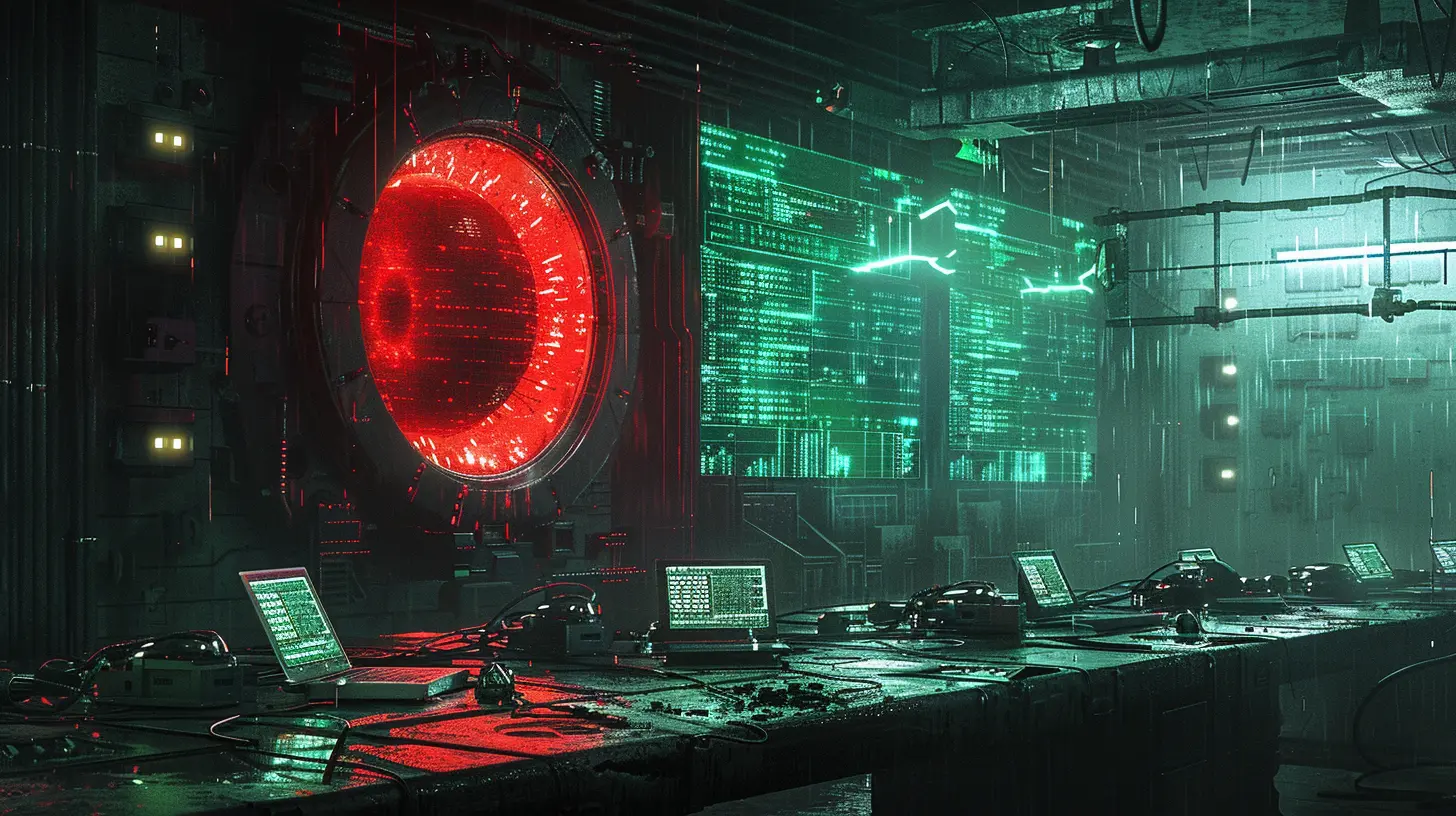
How Accurate Is Voice Recognition Today?
It’s fair to say that voice recognition accuracy has come a long, long way from the days of Shoebox and Harpy. But how good is it, really? Can it understand everyone perfectly, all the time? Not quite—but it's getting close.Current Accuracy Rates
Today’s top voice recognition systems, like those from Google, Apple, and Amazon, boast accuracy rates of over 90%. Some even claim rates as high as 95% in ideal conditions. That's pretty impressive considering the complexity of human speech.However, and here’s the kicker, these high accuracy rates are often achieved under perfect conditions—think clear speech, no background noise, and a familiar accent. Throw in some real-world variables, like a noisy café or a thick regional accent, and the accuracy can drop significantly.
But don’t be too harsh. Even humans struggle to understand each other in less-than-ideal conditions. Have you ever misheard someone at a loud concert or misunderstood someone with a heavy accent? The same principles apply to voice recognition systems.
Factors Affecting Accuracy
So, what exactly affects voice recognition accuracy? Let's break it down:1. Accents and Dialects: Not all voice recognition systems handle accents equally. While they’ve improved drastically, some accents or regional dialects can still trip up even the most advanced systems.
2. Background Noise: It’s no secret that noisy environments make it harder for systems to accurately recognize speech. If you’re trying to ask Siri something while standing next to a busy street, don’t be surprised if she gets it wrong.
3. Speech Clarity: Mumbling, slurring your words, or speaking too fast can significantly affect accuracy. Voice recognition systems, just like people, need clear speech to perform at their best.
4. Context and Vocabulary: Some systems struggle with specialized jargon or less common words, especially if they’re outside the system’s usual database.
Despite these challenges, voice recognition accuracy has reached a point where it’s highly functional in everyday scenarios. Sure, it’s not perfect, but it’s good enough that most of us use it regularly without even thinking twice.

The Role of Voice Assistants
Voice assistants like Amazon’s Alexa, Google Assistant, and Apple’s Siri have brought voice recognition into the mainstream. These devices have become household staples, and with them, voice recognition technology has grown by leaps and bounds.Personalization and Adaptation
One of the reasons voice assistants are so effective is personalization. They learn your preferences, understand your habits, and even adapt to your voice over time. For example, if you ask Alexa to create a reminder, she gets better at understanding how you phrase things the more you use her.This personalized approach drastically improves accuracy because the system becomes more attuned to your unique speech patterns. It’s like having a conversation with a friend who knows you well—they’re more likely to understand what you’re saying, even if you don’t express it perfectly.
Real-World Applications
Let’s not forget the real-world applications that make voice recognition essential today. From navigating hands-free in your car to controlling your smart home devices, voice recognition has become an indispensable tool in our tech ecosystem.Think about it: you're cooking dinner, your hands are covered in flour, and you suddenly remember you need to set a timer. Instead of fumbling around with your phone or oven, you just say, "Hey Google, set a timer for 15 minutes," and boom—you’re good to go. The convenience factor is off the charts.
The Future of Voice Recognition
Where do we go from here? If we’ve come this far, what does the future hold for voice recognition accuracy?Multilingual and Cross-Language Capabilities
One of the most exciting areas of development is the ability to handle multiple languages seamlessly. Right now, most voice recognition systems require you to switch between languages manually, but future systems could recognize and process multiple languages on the fly.Imagine speaking English and then seamlessly switching to Spanish in the same conversation—without having to adjust any settings. This would be a game-changer for multilingual households and global communication.
Emotion and Tone Detection
Another area of interest is emotion and tone detection. While current systems can pick up on basic commands, future iterations may be able to detect your mood based on your voice. Feeling stressed? Your voice assistant might offer to play some calming music or suggest a mindfulness exercise. This level of emotional intelligence could make voice assistants even more intuitive and helpful.Improved Noise Cancellation
We’re also likely to see major advancements in noise cancellation technology. Future systems may be able to filter out background noise so effectively that even in a crowded room, your voice commands will be heard loud and clear.
Wrapping It Up
Voice recognition technology has come a long way from its humble beginnings. What started as a clunky, error-prone experiment has evolved into a highly sophisticated tool that many of us use daily. Thanks to advancements in AI, machine learning, and NLP, voice recognition accuracy has improved dramatically, making it more reliable and useful in everyday situations.While there’s still room for improvement—especially when it comes to accents, background noise, and contextual understanding—the future looks bright. We’re not far from a world where voice recognition is as natural and accurate as human communication.
So, the next time you ask your smart speaker to play a song or dictate a message on your phone, take a moment to appreciate just how far we’ve come.
all images in this post were generated using AI tools
Category:
Voice AssistantsAuthor:

Marcus Gray
Discussion
rate this article
21 comments
Valencia Fry
Fascinating read! It’s amazing how far voice recognition has come—can’t wait for even more progress!
March 9, 2025 at 11:19 AM

Marcus Gray
Thank you! I share your excitement about the future of voice recognition technology!
April McCabe
This article provides a comprehensive overview of advancements in voice recognition technology. While significant improvements in accuracy and usability are commendable, it’s crucial to address remaining challenges such as dialect variations and background noise, ensuring continued progress for all users.
February 16, 2025 at 11:43 AM

Marcus Gray
Thank you for your insightful comment! I completely agree that while we've made great strides, addressing dialect variations and background noise is essential for further enhancing voice recognition technology for all users.
Colton McClellan
While impressive advancements in voice recognition technology are evident, the persistent challenges of accents, contextual understanding, and background noise highlight the need for continuous improvement and innovation in this field.
February 14, 2025 at 12:44 PM

Marcus Gray
Thank you for your insightful comment! You're absolutely right; while we've made significant strides, addressing accents, context, and noise remains crucial for further advancements in voice recognition technology. Continuous innovation is key to overcoming these challenges.
Jillian McLoughlin
This article beautifully captures the remarkable strides in voice recognition technology. It's inspiring to see how far we've come and the potential it holds for making our lives easier. Thank you!
February 12, 2025 at 7:34 PM

Marcus Gray
Thank you for your kind words! I'm glad you found the article inspiring and informative about the advancements in voice recognition technology.
Caroline Estes
It's fascinating to see how far voice recognition technology has advanced! From early voice command systems to today's near-instantaneous understanding of diverse accents and languages, the journey is impressive. I'm curious about future innovations—will we reach a point where voice recognition is seamless and omnipresent in our daily lives?
February 12, 2025 at 12:22 PM

Marcus Gray
Thank you! Indeed, the advancements have been remarkable, and as technology continues to evolve, we can expect voice recognition to become even more integrated and seamless in our daily interactions. Exciting times ahead!
Mason Potter
Voice recognition technology has significantly advanced, achieving impressive accuracy rates due to improvements in machine learning and neural networks. Enhanced training datasets and real-time processing have enabled better contextual understanding and reduced errors, making applications more reliable in everyday use—transforming industries from customer service to healthcare.
February 10, 2025 at 8:20 PM

Marcus Gray
Thank you for your insightful comment! Indeed, the advancements in voice recognition technology are remarkable and have greatly enhanced its reliability across various industries.
Zephyros Estes
Speech recognition: nearly perfect, yay!
February 9, 2025 at 8:21 PM

Marcus Gray
Thank you! We're excited about the advancements in speech recognition technology and look forward to even greater accuracy in the future.
April Barlow
From clunky commands to seamless conversations, voice recognition has evolved impressively. Yet, as we marvel at advancements, let's not forget the occasional hiccup—after all, even the smartest tech sometimes mishears a simple 'hello'!
February 9, 2025 at 3:52 AM

Marcus Gray
Absolutely! While voice recognition has made remarkable strides, it's important to acknowledge that occasional errors remind us there's still room for improvement.
Aris Griffin
Great insights on voice recognition! It's fascinating to see how far technology has advanced. Looking forward to future improvements and applications in everyday life!
February 8, 2025 at 1:52 PM

Marcus Gray
Thank you! I'm glad you found the insights valuable. The future of voice recognition truly holds exciting possibilities!
Zane McKinney
From garbled to genius!
February 5, 2025 at 12:05 PM

Marcus Gray
Thank you! It's amazing to see how far voice recognition technology has advanced.
Melody McGlynn
Voice recognition technology has made impressive strides, but challenges remain in understanding diverse accents and complicated phrases. Continued innovation and user feedback will be key to further improvements.
February 5, 2025 at 3:53 AM

Marcus Gray
Thank you for your insights! You're right; while we've made significant progress in voice recognition, addressing accent diversity and complex phrases is crucial for future advancements. User feedback will indeed play a vital role.
Jessamine Gill
Voice recognition has come a long way! Remember when it thought ‘sneeze’ was ‘pizza’ and tried to order a pepperoni during your cold? At this rate, I expect it to understand my morning grumbles before I even finish my coffee. Progress!
February 4, 2025 at 8:10 PM

Marcus Gray
Indeed, it's amazing how far voice recognition has advanced! The future of seamless communication is bright.
Ivy Perez
Voice recognition accuracy has come a long way, but let's be real: it still can't understand my coffee order. If only it could decipher my sarcasm as well as my commands! Here’s hoping for a future where machines truly get us—because we deserve better than 'could you repeat that?'
February 3, 2025 at 12:37 PM

Marcus Gray
You're right! While voice recognition has improved significantly, there's still a long way to go in understanding context and nuance, like sarcasm. Here's to hoping for advancements that truly connect with our everyday expressions!
Lilith Bowman
From mumbling mess to voice wizardry—tech, you rock! 🎤✨
February 2, 2025 at 9:41 PM

Marcus Gray
Thank you! It’s incredible to see how far voice tech has evolved—exciting times ahead! 🎶
Kingston Roberson
Great article! It's fascinating to see how much progress has been made in voice recognition technology. While there are still challenges to overcome, the advancements in accuracy are impressive. I'm excited to see how this technology will continue to evolve and improve our daily interactions!
February 2, 2025 at 5:11 AM

Marcus Gray
Thank you for your kind words! I share your excitement about the future of voice recognition technology and its potential to enhance our daily lives.
Zealot Beck
From garbled echoes to seamless conversations—voice tech has truly found its voice!
February 1, 2025 at 5:01 AM

Marcus Gray
Thank you! It’s exciting to see how far voice tech has advanced, transforming communication in remarkable ways.
Jonah McTier
Great article! It's fascinating to see how voice recognition has evolved. From simple commands to understanding context, it really feels like we're living in the future. Can't wait to see what advancements are next!
January 30, 2025 at 8:55 PM

Marcus Gray
Thank you! I'm glad you enjoyed the article. The evolution of voice recognition is indeed exciting, and there's so much more to come!
Avery McGrath
Great insights! It’s impressive to see how far voice recognition has come—excited to see where it’s headed next!
January 30, 2025 at 3:48 AM

Marcus Gray
Thank you! I share your excitement for the future of voice recognition technology—it's an exciting journey ahead!
Oriel Hamilton
Great article! It's fascinating to see the advancements in voice recognition technology. The progress in accuracy, especially with diverse accents and languages, is impressive. As AI continues to evolve, I'm excited to see further improvements and applications in everyday life.
January 29, 2025 at 9:58 PM

Marcus Gray
Thank you! I'm glad you enjoyed the article. The advancements in voice recognition are indeed exciting, and I share your enthusiasm for future developments!
Franklin Lamb
Great article! It’s fascinating to see how far voice recognition technology has evolved, making our interactions more intuitive and efficient. The advancements in accuracy are truly impressive, and I look forward to seeing how it continues to enhance our daily lives. Thank you for sharing!
January 28, 2025 at 11:25 AM

Marcus Gray
Thank you for your kind words! I'm glad you found the article insightful. Exciting times ahead for voice recognition technology!
Isabelle Soto
While voice recognition has made significant strides, issues like accents and background noise still hinder universal accuracy, reflecting the technology’s ongoing need for refinement.
January 28, 2025 at 5:08 AM

Marcus Gray
You're right; while we've made great progress, addressing accents and background noise remains crucial for improving voice recognition accuracy. Continued refinement is essential for universal application. Thank you for your insights!
MORE POSTS

How Cloud Computing is Changing the Landscape of Big Data

The Role of Gaming Consoles in Esports
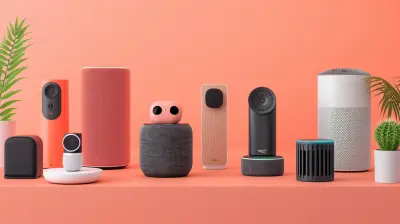
Smart Speaker Troubleshooting: Common Issues and Fixes

The Most Versatile Multi-Tools for Tech Enthusiasts

Tools for Monitoring Performance in Real-Time Applications
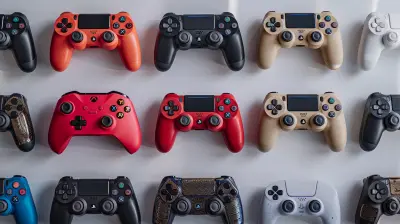
Exploring the Best Controllers for Competitive Console Gaming

Robotics in Construction: Building the Future with Precision
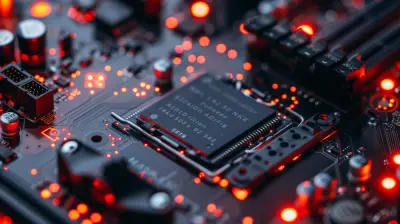
Understanding the Differences Between SATA, NVMe, and M.2 Drives
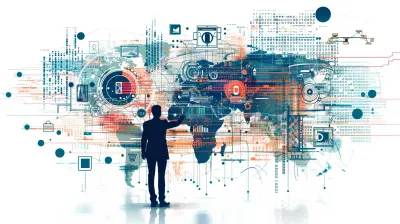
The Ethics of Data Collection: Where Do We Draw the Line?
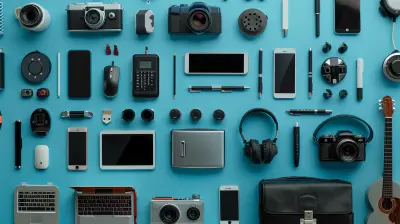
Innovative Gadgets That Are Redefining Daily Life

How to Choose the Perfect Mechanical Keyboard for Your Setup
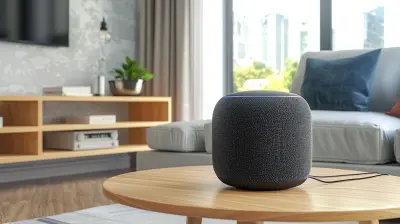
Smart Speaker Showcases: Enhance Your Living Room with the Latest Models

Console Exclusives: Are They Worth Switching Platforms?